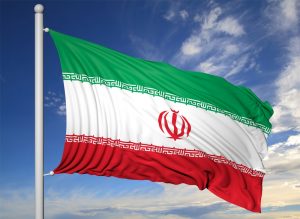Latest news about Bitcoin and all cryptocurrencies. Your daily crypto news habit.

Telegram’s initial coin offering has been the catalyst of confusion among Iran’s leadership, with conflicting statements regarding a potential ban on Telegram being made by officials. A few days ago, Iranian parliamentarian, Alaeddin Boroujerdi told media that Iran’s “highest level” officials wish to ban Telegram by April 20 due to the app’s monopoly position within the country and concerns that Telegram’s cryptocurrency may “undermine the national currency” in Iran. Despite M. Boroujerdi’s comments, the Iranian president, Hassan Rouhani, has spoken against the rumored ban.
Also Read: Venezuela to Use the Petro to Buy Auto Parts from Russia
Iranian Minister Calls for Telegram Ban
 Alaeddin Boroujerdi, the head of the Iranian parliament’s National Security and Foreign Policy Commission, has called for a ban on popular messenger app, Telegram.
Alaeddin Boroujerdi, the head of the Iranian parliament’s National Security and Foreign Policy Commission, has called for a ban on popular messenger app, Telegram.
Mr. Boroujerdi claimed that the decision to ban Telegram was “made at the highest levels,” adding that “Telegram will be replaced by a domestic app.” The app in question, Soroush, currently has a user base of approximately 3 million users – less than 10% of Telegram’s 40 million Iranian users.
The proposed ban has received support from Hassan Firouzabadi, the secretary of Iran’s High Council for Cyberspace, who stated that “Telegram never [agreed] to have an office in Iran and refused to work with the private sector [in Iran] and it is an enemy of the private sector.” Mr. Firouzabadi added that “Telegram is not a dominant messenger in any country except for Iran. […] Telegram has officially announced that it will be used as an economic platform and Telegram will undermine the national currency of Iran. We cannot allow [Telegram’s virtual] currency enter the country.”
In addition to the concerns pertaining to Telegram’s ICO, many analysts are arguing that Iran’s government is targeting Telegram due to its adoption as an organizational tool in staging popular demonstrations throughout Iran in 2017.
Mr. Firouzabadi predicted that the lifetime of the cryptocurrency phenomena will last approximately “10 years,” adding “during this period, approximately $50 billion [USD] will be withdrawn from the country. But if the price […] declines overnight, people will protest why there wasn’t any monitoring of it.”
Parliamentarians Push Back Against Proposed Ban
 Mr. Boroujerdi’s proposed Telegram ban garnered immediate pushback from other Iranian parliamentarians.
Mr. Boroujerdi’s proposed Telegram ban garnered immediate pushback from other Iranian parliamentarians.
Iranian reformist, Bahram Parsaei, has described suggested ban as a means to “create the groundwork” for a further reaching crackdown on the use of foreign messaging services. Mr. Parsaei also alleged that members of Iran’s parliament had convened for a closed-door session covering the topics of “cyberspace and domestic messaging services.” Mr. Parsaei added that “[They] tried to satisfy the members of parliament for such an action, but their arguments were not satisfying. I did not see approval of this issue among the majority of members.
The head of Iran’s parliamentary judicial commission, Jalili Rahimi Jahanabadi, has denied Mr. Parsaei’s assertion that a prohibition on Telegram was discussed during the parliamentary session. Mr. Jahanabadi defended the right of communication for the people, arguing that one “cannot ignore the inalienable right of people for communication.”
Parliamentarian Tayebeh Siavoshi also told media that he “asked the minister of communications about the rumors of the blocking of Telegram,” to which he was informed “‘It is possible, but I’m vehemently against blocking as the only solution.’”
In response to the criticism, Mr. Boroujerdi has argued “When England, as an example of a Western country, whose prime minister says that Telegram is the [home] of terrorists, and countries like China and Pakistan block Telegram, it shows that this is an important reality, that Telegram was designed in a way with behind-the-scenes complexities, that it is essentially a security threat to the Islamic Republic.” The minister went as far as to claim that Telegram’s founder, Pavel Durov, is closely tied to Israeli Prime Minister Benjamin Netanyahu.
President Rouhani Weighs In
 In recent days, President Rouhani has addressed the Telegram controversy, stating “Having strong, secure and cheaply priced Iranian messaging applications that can solve people’s needs and problems will surely make everyone proud.”
In recent days, President Rouhani has addressed the Telegram controversy, stating “Having strong, secure and cheaply priced Iranian messaging applications that can solve people’s needs and problems will surely make everyone proud.”
Mr. Rouhani added, however, that “The goal of creating and enhancing Iranian software and messaging apps should not be blocking access [to other apps], but should be the elimination of monopolies,” suggesting his desire to allow competition between messing applications, and reluctance to take prohibitive action.
Iranian parliamentarian, Jalal Mirzaei, has supported the Mr. Rouhani’s position, stating “The president said that we shouldn’t make society anxious by these types of actions, and if there is any problem, we should solve it prudently. […] We shouldn’t forget that 200,000 job opportunities will be lost by blocking telegram.” Mr. Mirzaei also quoted the president as stating “Nobody is opposed to breaking Telegram’s monopoly [in Iran], but blocking Telegram is not the solution for creating […] local messaging applications.”
What is your response to the contradictory positions held by Iranian officials with regards to banning Telegram? Share your thoughts in the comments section below!
Images courtesy of Shutterstock
At news.Bitcoin.com all comments containing links are automatically held up for moderation in the Disqus system. That means an editor has to take a look at the comment to approve it. This is due to the many, repetitive, spam and scam links people post under our articles. We do not censor any comment content based on politics or personal opinions. So, please be patient. Your comment will be published.
The post Iranian Officials Issue Contradictory Statements Regarding Telegram Ban appeared first on Bitcoin News.
Disclaimer
The views and opinions expressed in this article are solely those of the authors and do not reflect the views of Bitcoin Insider. Every investment and trading move involves risk - this is especially true for cryptocurrencies given their volatility. We strongly advise our readers to conduct their own research when making a decision.